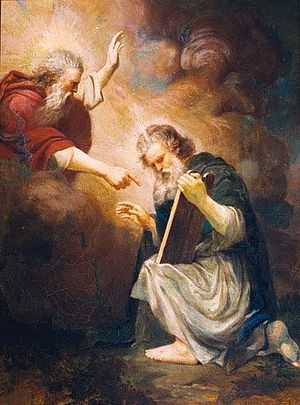
 N TODAY’S GOSPEL Jesus makes a very simple statement when He says, If you love Me, you will keep My commandments. And then towards the end He somewhat repeats Himself by saying, Whoever has my commandments and observes them is the one who loves me.
N TODAY’S GOSPEL Jesus makes a very simple statement when He says, If you love Me, you will keep My commandments. And then towards the end He somewhat repeats Himself by saying, Whoever has my commandments and observes them is the one who loves me.
Observing the Commandments: Observing the commandments is a rather straightforward thing. We presumably know what they are and what they entail. They tell us what we should do and what we should not do. And if we go against them, then we are sinning. And in the manner or degree that we sin, that is the manner or measure in which we do not love Jesus. There is no getting around this.
No Picking and Choosing: I’ve entitled the next part of this sermon as “no picking and choosing.” And the reason I’ve done this is that it is not unusual for me to meet people who will say, “Oh, I’m Catholic, but I don’t agree with what the Catholic Church says about birth control or abortion.” Or, “I don’t agree with the Church about women’s ordination.” And on down the line. And this can also refer to things the Church teaches about which we must believe. We are told that only thirty percent of Catholics really believe in our Lord’s real presence in the Blessed Sacrament. Well, what does that say about the other seventy percent? St. John Paul II has definitively taught that the Church does not have the authority or authorization from God to ordain women, and yet I know priests who don’t believe it.
The Holy Spirit and Truth. Jesus also speaks about sending the Holy Spirit who will teach you all truth. We know that Jesus kept this promise first of all on Pentecost when He descended on the Apostles (we will be hearing about that two Sundays from now). Jesus also promised that this Holy Spirit would be with His Church till the end of time. The fact that His Church is still in existence is proof that He has kept His promise. There have been many bleak moments in the history of the Church, and yet, somehow or other the Church has always come through. And it will always come through because of the presence of the Holy Spirit.

Second Reading: In the second reading from the First letter of St. Peter, he admonishes the early followers of Christ that the world around them will probably wonder why they always seem to be so full of hope. He tells them that they should calmly let people know that they are trying to live like this Jesus taught them to live. Who knows, but that this might have a good effect upon them? St. Peter tries to console us by saying it is better to suffer for doing what is right than to suffer for doing what is wrong. This reminds me of the repentant thief on the cross who said that he and the other one crucified with our Lord were suffering for the wrong they had done, but this Jesus was suffering even though He had done no wrong.
First Reading: I would probably be remiss if I did not mention something about the first reading; how it is a veiled reference to the Sacrament of Confirmation, which is distinct from the Sacrament of Baptism. Apparently the people in Samaria had already been baptized (probably by deacons or presbyters). But only the Apostles like Peter and John or other bishops could give them the Holy Spirit by laying hands on them, which is essentially what the Sacrament of Confirmation is. Thus we see already in the early Church that a distinction was made between Baptism and Confirmation.
Conclusion: To me it is interesting how the Communion verse for today combines both the Gospel and the first reading. It says, “If you love me, keep my commandments, says the Lord, and I will ask the Father and He will send you another Paraclete to abide with you forever.” We keep the commandments to show that we love Jesus, but we do that mainly through the help of the Holy Spirit whom we especially receive in the Sacrament of Confirmation.
We hope you enjoyed this homily by Fr. Valentine Young, OFM.

